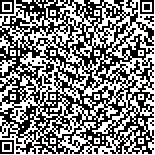| 摘要: |
| 研究了在糊化山药粉全部替代鼠尾藻(Sargassum thunbergii)粉的饲料中添加不同方法处理及不同种类包膜氨基酸的饲料对刺参(Apostichopus japonicus Selenka)幼参生长、消化及免疫指标的影响。试验1, 在水温13.0~18.0℃下, 将平均体质量为2.27g 的刺参饲养在18 个50 L(50 cm×40 cm×30 cm)的塑料水槽中(15 头/槽), 投喂添加淀粉包膜的缬氨酸、苏氨酸、亮氨酸等多种氨基酸的饲料。40 d 的饲养表明, 幼参的特殊增重率(RSG)和对饲料蛋白及脂肪的消化率随饲料中添加包膜氨基酸水平的增加而逐渐升高, 其中添加包膜氨基酸水平最高组的幼参显著高于未添加包膜氨基酸的对照组(P<0.05)。试验2, 在水温10.0~19.0℃下, 给平均体质量1.55 g 的刺参投喂在山药粉完全替代鼠尾藻粉的对照饲料(S0)中分别添加0.37%明胶包膜赖氨酸(S1)、0.37%包膜赖氨酸加0.38%包膜蛋氨基酸(S2)和0.37%包膜赖氨酸、0.38%包膜蛋氨酸加0.39%包膜苏基酸(S3)的饲料。60 d 的饲养表明, 幼参的RSG随饲料中添加氨基酸种类的增加而显著增高, S3、S2 和S1 组刺参的RSG 分别比S0 组高154.6%、82.1%和57.2%。S3 组刺参体腔液超氧化物岐化酶(SOD)和酸性磷酸酶(ACP)活力及对饲料蛋白的消化率(87.26%)均显著高于S0 组,说明山药粉替代鼠尾藻, 添加明胶包膜赖氨酸、蛋氨酸和苏氨酸可以显著提高刺参生长速度及免疫能力。 |
| 关键词: 刺参(Apostichopus japonicus Selenka) 幼参 氨基酸 生长 免疫 |
| DOI: |
| 分类号: |
| 基金项目:辽宁省教育厅计划 (No 20060186);辽宁省海洋与渔业厅资助项目 |
|
| Effects of dietary supplementation of coated amino acids as sea weed meal substitution on the growth, dietary digestibility and immune indices of juvenile sea cucumber Apostichopus japonicus Selenka |
|
WANG Ji-qiao,ZHANG Kun,JIANG Yu-sheng,ZHANG Jian-cheng
|
| Abstract: |
| The effects of supplementation of coated amino acids in the diets replacement of sea weed Sargassum thunbergii meal on the growth, dietary digestibility and immune indices of juvenile sea cucumber Apostichopus japonicus Selenka were studied. In trail 1, sea cucumber juveniles averaging 2.27g were stocked into the plastic tanks (45cm×31cm×30cm) at a density of 15/tank and fed with the diets replacement of yam meal for the sea weed meal (as a control) supplemented with the amino acids coated by starch according to the supplementation of essential amino acids in aquaculture recommended by FAO in triplicates for 40 days with water temperature varying from 13.0 to 18.0 °C. The results showed that there were gradual increase in specific growth rate (RSG), and digestibilities of dietary protein and fat for sea cucumber juveniles fed the diets containing gradual increase of the coated amino acid; significant increase was seen in the diets containing maximum level of amino acid (P<0.05). In trail 2, under similar conditions sea cucumber juveniles (1.55 g) were fed with coated lysine(S1), coated lysine plus arginine (S2) and coated lysine, arginine and threonine (S3) and S0 (control) in triplicates for 60 days with water temperature varying from of 10.0 to 19.0 °C. The results showed that the sea cucumber had increase in RSG as they fed the diet containing more and more types of coated amino acids, i.e. the peak RSG was observed in group S3, 154.6%, 82.1%, and 57.2% higher than that in the S0. There were significantly higher serum superoxide dismutase (SOD) and acid phosphatase, and dietary digestibility(87.26%) than those (73.75%)of the group S0(P < 0.01), indicating that sea weed meal-free diets supplemented with coated amino acids improve the growth, digestibility and immune in the sea cucumber. |
| Key words: Apostichopus japonicus Selenka juvenile sea cucumber amino acid growth immune |
